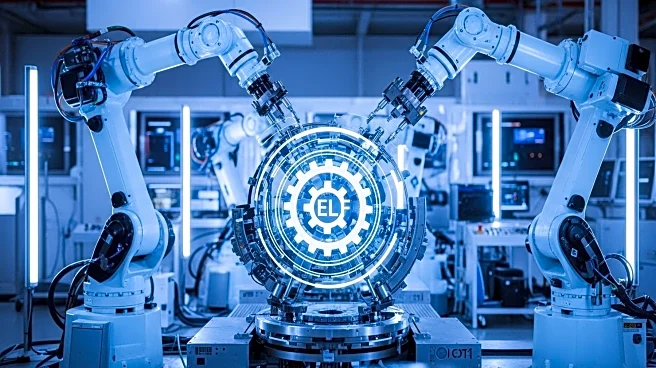What's Happening?
Prime Minister Narendra Modi has made a strong appeal for promoting 'swadeshi' goods as part of the 'Atmanirbhar Bharat' initiative, coinciding with upcoming GST reforms. Modi announced a 'GST bachat utsav' to begin with Navratri, highlighting the benefits of reduced GST rates and income tax exemptions. He emphasized the role of states as equal stakeholders in the development race, urging them to accelerate manufacturing with a focus on self-reliance. The initiative aims to enhance ease of doing business and attract more investors, aligning with the government's vision for economic growth and sustainability.
Why It's Important?
Modi's call for 'Atmanirbhar Bharat' in the manufacturing sector underscores the government's commitment to economic self-reliance and sustainable development. By promoting swadeshi goods and simplifying tax structures, the initiative seeks to boost domestic production, create jobs, and enhance India's global competitiveness. The focus on manufacturing is expected to drive economic growth, reduce import dependency, and foster innovation. This approach aligns with broader national goals of economic stability and resilience, benefiting local industries and entrepreneurs.
What's Next?
The implementation of GST reforms and the promotion of 'Atmanirbhar Bharat' are likely to lead to increased investment in manufacturing and infrastructure development. State governments may introduce policies to support local businesses and attract foreign investors interested in 'Made in India' products. Monitoring the impact of these initiatives on economic indicators and consumer behavior will be crucial. Further reforms may be implemented to streamline regulatory processes and enhance ease of doing business, ensuring long-term economic stability.









